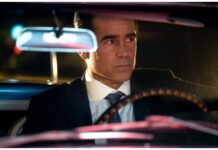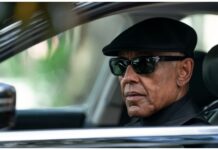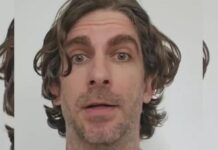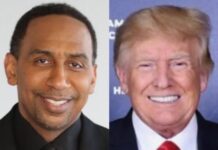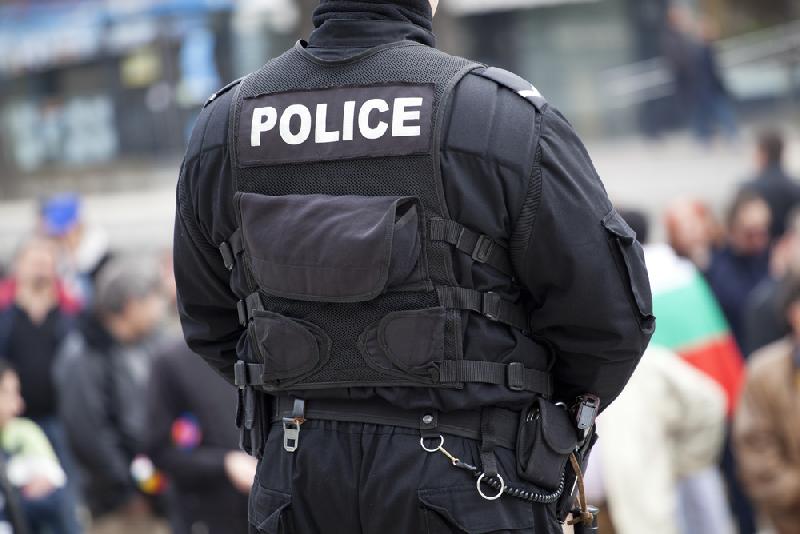
*I lost my dad this year.
I loved him dearly. In some of our last moments together, he would tearfully wish he had been a better father. I assured him that he was the best father I could have asked for. I knew so many horror stories from friends of fathers who were abusive, absent, uncaring. My dad showed me the kind of man I wanted to be, not by reciting articulate life lessons, but by example.
He was a cop.
As such, I grew up around cops.
Back in the ’80s and ’90s, I don’t know, maybe because I was in close proximity all the time, I couldn’t tell a policeman from a civilian. I was never afraid of the police.
When your dad’s a cop, and you have the same name, you get out of speeding tickets as soon as you show your ID. You’re not afraid to ask for help either.
I can remember having my car locked up in Chicago while I was hanging out with a Puerto Rican friend. I saw a couple of cops sitting in a squad and went over to ask them for help. He was nervous about it, I remember now, and I kind of chided him for it later.
I remember now that these two guys got out of their squads with their hands on their pistol butts. I didn’t think anything of it at the time. I guess I just figured it was Chicago (my dad policed a south suburb, Calumet City, where the Blues Brothers were from, not exactly a hotbed of shootings at the time).
Years later, driving through the California desert scouting locations, I got pulled over for speeding by the highway patrol. My dad was retired. I was long past the years of getting away with tickets. I had my friend and production assistant, a black man, with me.
“Whoa,” said the patrolman, when he came to the window. “You’re a big old boy, ain’t you?”
He didn’t mean me.
Cops have changed nowadays, my mom tells me. I definitely see a difference in them. But I’m not sure that it’s because they’ve changed, or I have.

My dad was a good cop.
I have always known this.
My mom told me a story about a fellow officer, over at the house one night, drinking a bit, asking my dad why he ever became a cop.
“You’re too nice,” he said.
He always talked. Always talked them down. Never shot anybody. Never beat anybody down.
I’ve always been proud of that.
I could tell other stories about my dad. How he alone was able to comfort a traumatized juvenile kidnapping victim until they were capable of positively identifying their abuser. How he was Officer Friendly, the face of the police to elementary school kids, and Officer of The Year.
How, when a friend of mine dropped dead over the summer on a basketball court, he got me his mother’s address so I could write her everything I’d loved about her son. How in high school, any of my friends who found themselves in trouble with the cops would take me aside and tell me ‘how cool’ my dad was.
Once he apologized to me, on a long drive, that he had never quite gone as far as he could have, to afford better things for me. I knew the reason. My mom had told me by then about the bad cops in the department, and how he’d been passed over for promotion because he didn’t play ball, never exchanged favors or looked the other way.
I told him then I was proud of him.
I reiterate; my dad was a good cop.
But this isn’t about good cops.
I tell you this to tell you I understand cops as much as I can. I understand that they arrive on the scene of a call and when they get out of the car, they don’t know who might attack them simply for their uniform. I understand they can’t tell good people from bad people on sight, and I know how these experiences can twist the mind to expect the worst. I know this. I’ve heard the stories first hand.
I also understand that when a cop arrives on the scene, the average person – the average black or brown person in particular – can’t tell if they’re good or bad either. That uniform, that badge, that’s no indication of the quality of the bearer. All cops are not heroes. All cops are not good.
And there develops a tendency for both to view the other as a potential enemy in a combat zone.
Because there are bad cops. We all know this. We’ve all seen this.
Now I’m going to tell you about 2015.
Ferguson and Michael Brown were in the news.
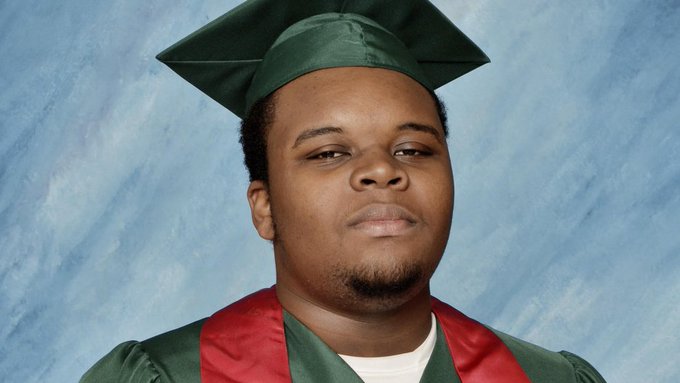
My dad was still alive. I think he was retired by then. If not, he was a bailiff in an Indiana county courthouse.
I was home with my kids for the holidays. We were visiting a mutual old family friend, and a member of that family was there, whose son I had grown up with, and who had become an ATF agent.
Let me tell you something about this kid. I still think of him as a kid because he was (is) a couple years younger than me. We grew up together. Our families were close.
I have a couple fond memories. We discovered “Predator” and “Robocop” together. We were in Cub Scouts together. Went camping and river rafting together. We had birthdays together.
This guy had no business becoming a police officer.
That sounds judgmental of me, I know. Who the hell am I to make that call?
He always had temper issues. He was a bully. He was often a coward. He was a racist.
I was no saint. As a white suburban kid I said stupid things, had ignorant beliefs. Of course I did. How could I not, given where I grew up? I changed as I grew, as we all do.
I can remember at my one-time friend’s high school graduation, I hadn’t seen him in a while by then, we were sitting at the table and he kept glaring at the waiter, a slim guy with a lisp. He started loudly making cracks about ‘faggots.’
I didn’t even know why at the time. I was pretty freakin’ naïve. I’ll tell you truly, and as ridiculous as this sounds in 2020, this is no lie; I didn’t even believe gay people existed till I was a junior in high school. I thought it was just an imagined behavior and a term kids used pejoratively.
I can still see the consternation on that waiter’s face, which I took for mere annoyance then. It was, with hindsight, a clear desire to say or do something warring with the need not to get fired for pitching this little asshole out of his chair.
I didn’t say anything.
I’m a slow learner.
You’re going to see just how slow.
When I heard this guy had become not only a cop but a federal agent, I remember shaking my head. I couldn’t imagine what kinda cop he would make.
Now back to 2015.
We’re sitting in the living room, and this guy’s dad is discussing the news through gritted teeth. I’m paraphrasing the syntax here, but not the terms. I remember the words clearly, and the vehemence dripping from them.
“You know all that shit going down in Missouri, in Ferguson? Where that monkey got killed? Yeah they had all this shit in the street for him, you know? Brian and his partner said they drove right through that shit at night and dragged it down the street. Ha-HA!”
You may not remember this. I haven’t really forgotten. I have thought about it a lot, particularly since George Floyd.
The supporters of Michael Brown and his family had constructed a memorial to him, of flowers and pictures, supporting messages, candles, remembrances lining Canfield Drive in Ferguson.
And according to his father, Brian and his partner, both ATF agents, had driven through it and dragged it down the street. On purpose.
On Christmas night.
An early look at next week’s cover, “Say Their Names,” by @KadirNelson: https://t.co/Nj3q09OrOL pic.twitter.com/a3w3l1XESb
— The New Yorker (@NewYorker) June 14, 2020
In combing through the news for a report of that incident, I found this statement from Public Information Officer Tim Zoll, quoted to KMOX News:
“It’s our understanding that an alleged vehicle, we’re assuming, drove over the memorial and kept going. We have no other information other than that. Nobody has come forward to make a report; therefore, we’re not investigating it.”
And he told the Washington Post;
“I don’t know that a crime has occurred…But a pile of trash in the middle of the street? The Washington Post is making a call over this?”
Yeah, that’s what he said, the memorial to a dead young black man was a pile of trash.
And that was how my one-time friend and his partner treated it.
I remember, hearing this, the bottom of my stomach dropping out. I remember standing abruptly and going into the next room where my kids were pounding on a piano.
But did I say anything?
Nope. No more than I said anything when he harangued that poor waiter on his graduation day.
To my mother, later, yeah. I said I didn’t want that guy anywhere near my kids ever again. I said if they were ever going to have him around and we were there, let me know in advance so I can be elsewhere.
And later, visiting another old friend, I shared this with him and he was incensed.
“What’re you gonna do?” he said.
And that stopped me.
What was I supposed to do? I thought.
It hadn’t occurred to me at all to do anything.
I remember saying, lamely,
“Well….my mom and dad, they’re still friends with his dad….”
That night I went on the FBI’s webpage, thinking of leaving an anonymous tip. Or maybe it was the ATF’s site. I don’t remember which.’
I do remember you couldn’t file a complaint anonymously.
So I didn’t do anything.
And five years later, I still haven’t done anything. Didn’t call or write any news outlets. Didn’t even say anything to his dad when I saw him once years later briefly (not around my kids).
Didn’t say anything to my dad either.
I’ve thought about it a couple times a year since, but as more and more time has passed, it felt like I’d missed the opportunity to speak up. Nobody cares anymore, I told myself.
But obviously people do. It matters. It matters to Michael Brown’s mother, to those who loved him. It matters to all the people Brian encounters in his continued role as a federal agent.
Because this juvenile, petty vandalism of a dead man’s impermanent, memorial, was not the thoughtless act of the dumb, ignorant kid I knew.
This was the deliberate act of a grown man in his thirties. A grown man now serving as an ATF agent.
If he did this in 2015, what’s he done since?
A new video released shows what may have happened before the fatal shooting of Michael Brown in Ferguson, Mo. https://t.co/HBTxbLDp5n pic.twitter.com/Qzh0kmwKIZ
— Chicago Tribune (@chicagotribune) March 12, 2017
I know how it made me feel just hearing about this vandalism second hand. I was enraged, and it wasn’t an act against me or my family. Although this depredation did not require any planning on his part, only a vehicle and opportunity, it was a harmful, despicable, cowardly act. I know the effect it was intended to have on the people of Ferguson.
It was a message. A message that said;
“Black lives don’t matter. Your memorial is trash. You’re trash. A bunch of monkeys.”
Brian Giovingo is a bad cop. The term is monumentally inadequate for what he is. This one craven act I know of casts aspersion on every agent he serves with. It defiles the social pact his badge is supposed to represent, and it bolsters every negative belief that exists against law enforcement.
I didn’t say it then. Didn’t report it, didn’t even stand up and tell his dad he was wrong to express elation over his son’s vile antics, or chide my own parents for indulging his vitriol with their silence because I didn’t want to disrupt my family’s relationship with theirs.
I didn’t want to cause ripples, even though I hadn’t seen Brian in years, decades, at this point. Yet the only real reprisal I could expect was what? Shunning, from somebody I didn’t want to be around anyway? A couple of uncomfortable dinners?
What kind of reprisal do others face from unworthy law enforcement representatives like Brian? What kind of real life threat do people face every day with guys like him wearing a badge and carrying a gun?
Still, I balked. I was a coward. I didn’t speak up.
So what does a good cop go through every day, with bad cops inextricably in their midst, and why’s it so hard to shine a light on the bad?
That’s the culture I unconsciously inherited; don’t ‘rat.’ Don’t cause other people problems. Mind your own business. Don’t be a troublemaker.
But I have come to understand that I have to reject that, because when an evil is done right in front of us and we don’t say or do anything to correct it, we become an accessory. Our hearts are sullied by association. We are lessened.
It is absolutely unacceptable to surrender the authority of conscience to any belief system which celebrates non-intervention over moral obligation; which dispenses with ethics in the name of maintaining some facile, placid status quo – in our lives, in our work, in our relationships with each other.
It took my dad’s death for me to feel free to say this now.
Whose deaths are all the good cops out there waiting for?
By Edward M. Erdelac
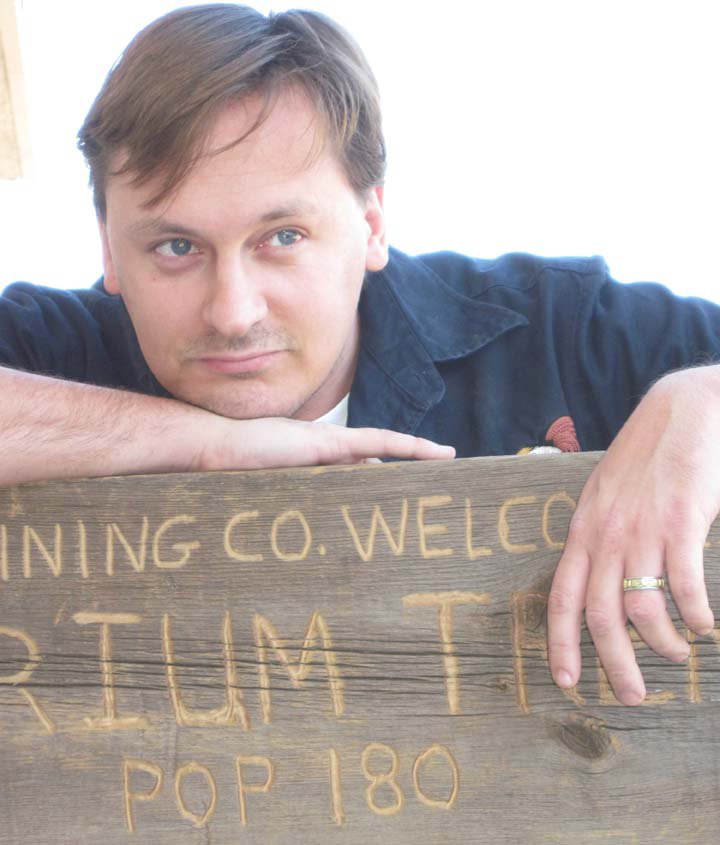
*Edward M. Erdelac is an award winning screenwriter, an independent filmmaker, and contributor to Star Wars canon. He’s been published in several magazines and is the author of Buff Tea, Dubaku, and the acclaimed weird western series Merkabah Rider.
We Publish News 24/7. Don’t Miss A Story. Click HERE to SUBSCRIBE to Our Newsletter Now!

